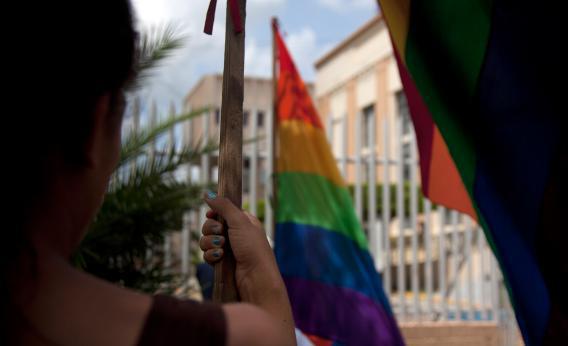The past few days have seen an encouraging step forward—and a tragic step backward—for the transgender community. Yesterday, Kylar Broadus, a Missouri-based attorney and professor, became the first openly transgender person to testify before the U.S. Congress, speaking about his personal experience with workplace discrimination and the need for legislation like ENDA (Employment Non-Discrimination Act) to stop it. In a story fit for a psychological thriller, Broadus recounted being systematically forced out of a lucrative career in finance.
… While my supervisors could tolerate a somewhat masculine-appearing black woman, they were not prepared to deal with my transition to being a black man. With growing despair, I watched my professional connections, support, and goodwill evaporate, along with my prospects of remaining employed. I was harassed until I was forced to leave. I received harassing telephone calls hourly from my supervisor some days. I received assignments after hours that were due by 9 a.m. the next morning. The stress was overwhelming. … [Shortly after returning from a stress leave], I was forced out and unemployed for about a year before finally obtaining full-time employment.
Though ENDA has been bouncing around Congress for many years without success, the bill now has the support of President Obama, who, if re-elected, will likely mount a more concerted push for its passage. In the meantime, transgender people like Broadus will continue to live and work under the threat of arbitrary discrimination, but at least their voices are finally being heard in the halls of power.
On a sadder note, another transgender voice—that of 23-year-old Thapelo Makutle—has been violently silenced. An LGBT activist and award-winning drag performer in the rural Northern Cape Province of South Africa (who identified as both gay and transgender), Makutle was brutally murdered over the weekend by two assailants, reportedly after an argument about his sexuality. Mambaonline has the details:
According to the [advocacy] group Legbo Northern Cape, Thapelo Makutle was attacked at his place of work in the John Taolo Gaetsewe district on Friday … His two attackers are believed to have followed him to the room where he lived and on Saturday cut his throat, decapitating him. They left his body under a blanket as though he were sleeping.
Friends of Makutle are calling for the police to treat the murder as a hate crime, but some in the LGBT community are voicing doubt as to the authorities’ willingness to comply. According to the GlobalPost, while South Africa actually extends equal rights—even same-sex marriage—to LGBT people, bias violence is on the rise, especially in smaller townships and villages:
In a high-profile incident last year, Noxolo Nogwaza, a lesbian activist based in KwaThema township near Johannesburg, was gang-raped and then stabbed and stoned to death, in what the New York-based group Human Rights Watch described as part of an “epidemic” of hate crimes against gays and lesbians in South Africa.
Both the firing of Broadus and the murder of Makutle prove that the policing of sexuality and, especially, gender in supposedly enlightened countries is still quite common, and, in some cases, fatal. Even as we work toward legislative and judicial guarantees of equality, cultural attitudes—particularly outside more liberal urban centers—demand our attention as well.
